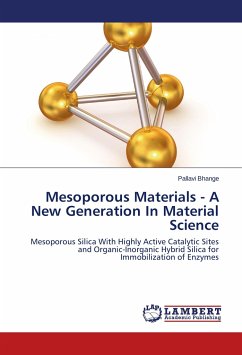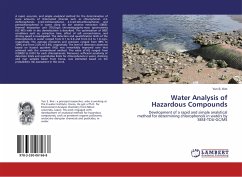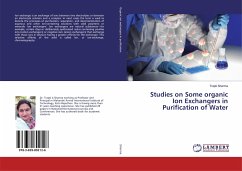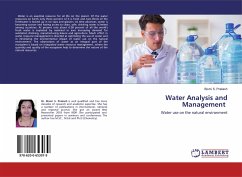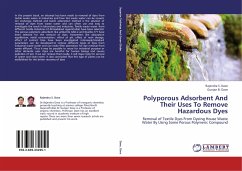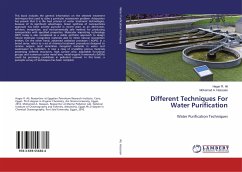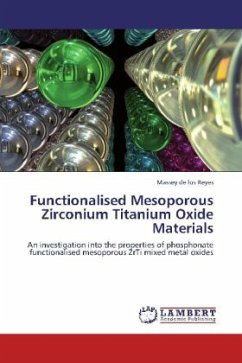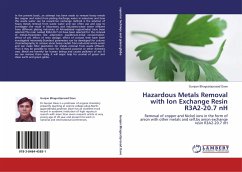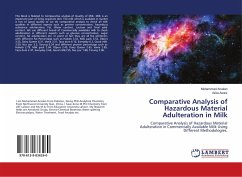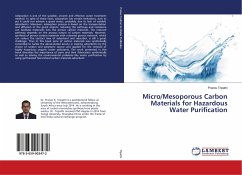
Micro/Mesoporous Carbon Materials for Hazardous Water Purification
Versandkostenfrei!
Versandfertig in 6-10 Tagen
37,99 €
inkl. MwSt.

PAYBACK Punkte
19 °P sammeln!
Adsorption is one of the suitable, ancient and effective water treatment method. In spite of these facts, adsorption has certain limitations, such as yet it could not achieve a good status, probably, due to lack of suitable adsorbents. Moreover, adsorption process is based on the transportation and diffusion of the guest objects; reducing the pathway and resistance can facilitate molecules into the porous carbon materials. The reduced pathway depends on the porous nature of carbon materials. However, synthesis of porous carbon materials with a desired porous network, which can reduce the conta...
Adsorption is one of the suitable, ancient and effective water treatment method. In spite of these facts, adsorption has certain limitations, such as yet it could not achieve a good status, probably, due to lack of suitable adsorbents. Moreover, adsorption process is based on the transportation and diffusion of the guest objects; reducing the pathway and resistance can facilitate molecules into the porous carbon materials. The reduced pathway depends on the porous nature of carbon materials. However, synthesis of porous carbon materials with a desired porous network, which can reduce the contact time of adsorbent and adsorbet, is still a great challenge. Thus In this book pore of carbon materials was synthetically controlled to tackle the above-stated lacuna in existing adsorbents by the choice of carbon and polymeric source and applied for the removal of highly hazardous organic water pollutants. The work presented in this book describes the importance of pore and their fabrication synthetically as well as solving the environmental problems like water purification by using synthesized hierarchical carbon materials adsorbent.



